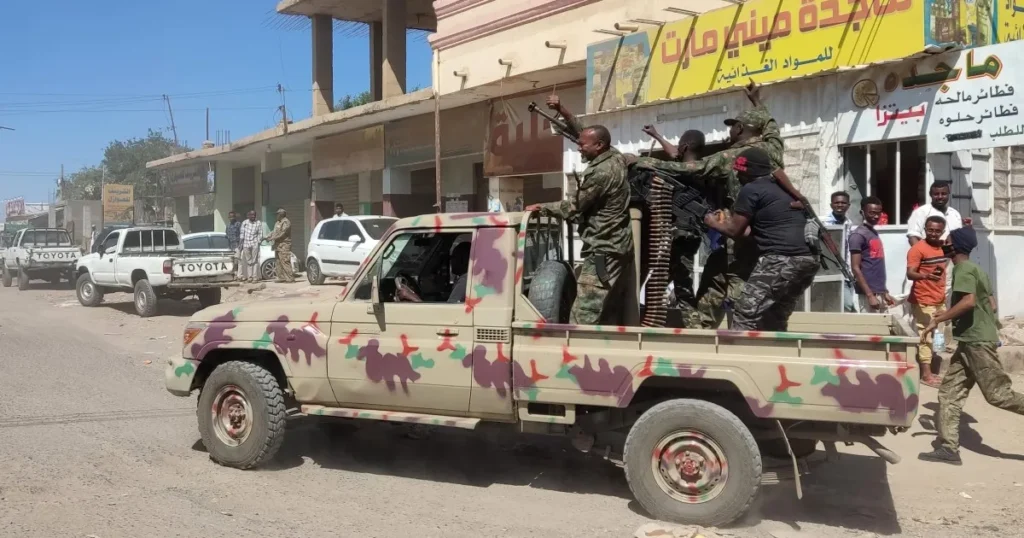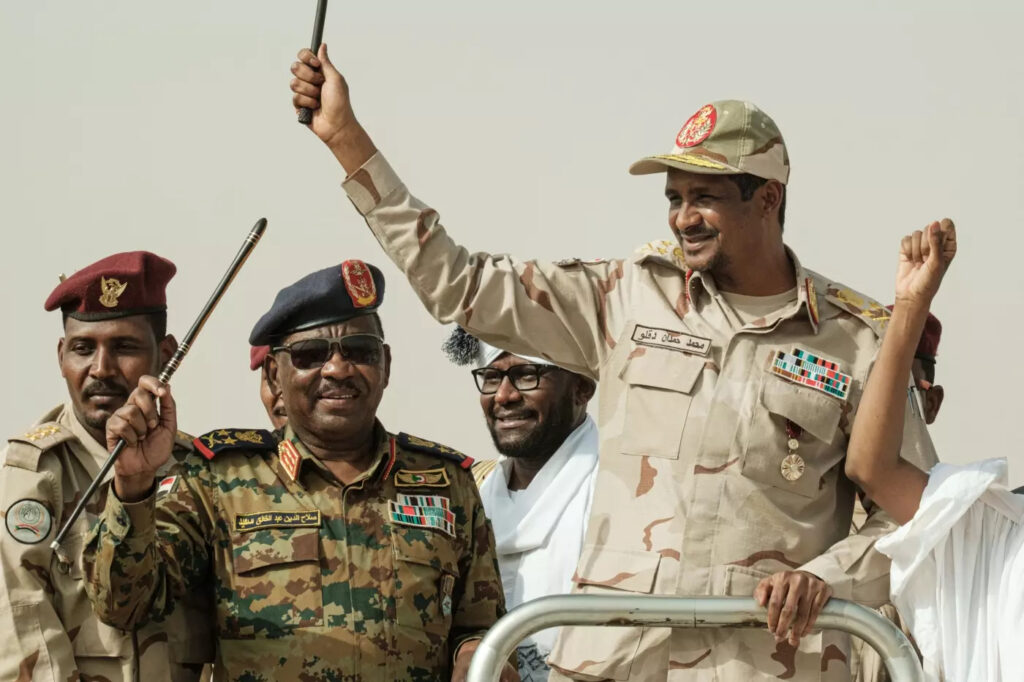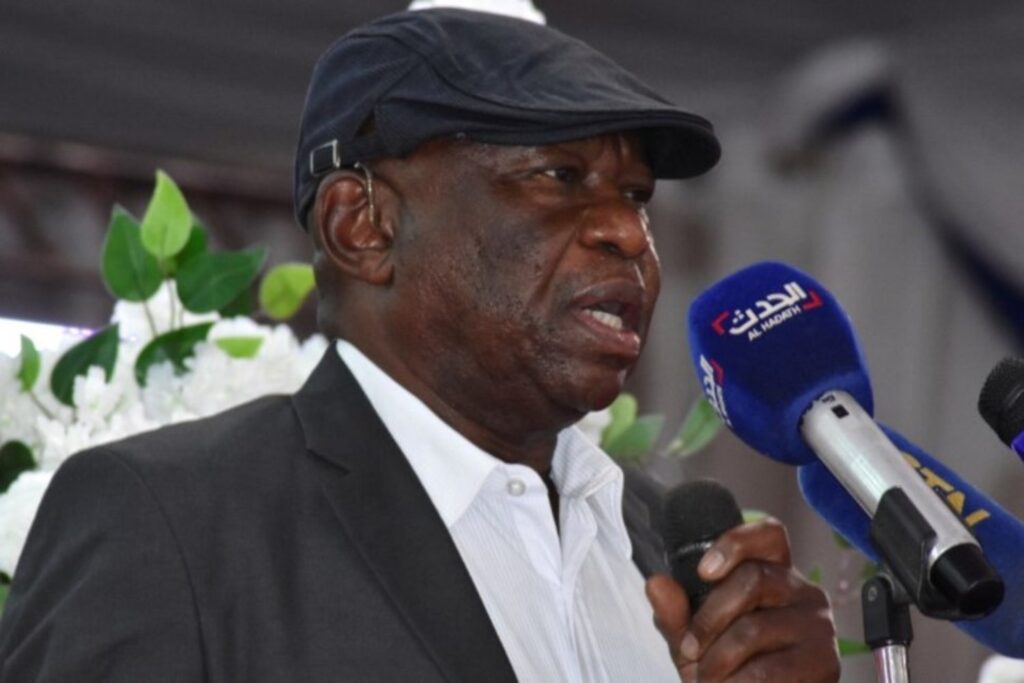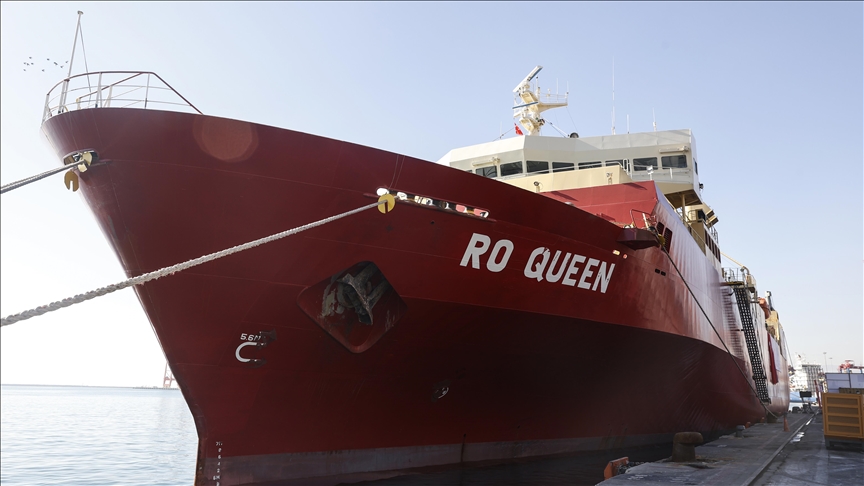
Uncertainty continues to surround the fate of Almusbah Abu Zeid Talha, commander of Sudan’s Islamist-aligned Al-Baraa bin Malik Brigade, following his arrest three days ago from his residence in Alexandria, Egypt. The move has drawn no official comment from Cairo or Khartoum, deepening speculation over the motives behind this sudden security operation.
According to multiple sources cited by Sudan Tribune, Almusbah was taken from his apartment in Alexandria’s Al-Ajami district in the morning by an unidentified security force, with no explanation given to his family. Reports indicate Sudan’s Sovereignty Council members have been in urgent contact with Egyptian officials to clarify the circumstances.
Almusbah, a key figure in Sudan’s armed Islamist movement, had arrived in Cairo about a month earlier for medical treatment and to see family. However, informed sources say he attended unapproved religious and political gatherings, violating Egypt’s residency rules that ban political or religious activity without prior authorization.
Analysts quoted by London-based Al-Arab argue that the arrest is not an isolated security incident, but a direct message from Cairo against the growing influence of armed Islamist factions in Sudan—especially those attempting to shift from a military to a civilian role, as Al-Baraa Brigade recently declared.
Egypt is reportedly wary of such groups positioning themselves for political influence after the war, particularly given their past alliance with General al-Burhan’s forces (SAF) in capturing Khartoum. Cairo sees this as a potential attempt to recycle Sudan’s Islamist project, clashing with its longstanding red line against the Muslim Brotherhood and its allies.
Sudanese political analyst Ammar Najm al-Din wrote in Idrak that the incident has exposed fractures within the Islamist bloc backing Burhan in Port Sudan. He suggested the silence from the Sovereignty Council and Sudan’s embassy in Cairo—despite Almusbah meeting the ambassador shortly before his arrest—signals tacit agreement to “sacrifice” him. Najm al-Din also cited eyewitness claims that a Sudanese diplomatic vehicle was present during the arrest, hinting at possible coordination with Egyptian security.
He likened the moment to a “Night of the Long Knives” scenario, recalling past internal purges in Sudan’s Islamist movement, such as between former dictator Omar al-Bashir and his rivals. According to Najm al-Din, Burhan now faces the risk that Almusbah’s forces could become the instrument of his own downfall if tensions escalate.
Another Sudanese analyst, Adel Sayed Ahmed, told Al-Arab that Almusbah, long linked to Sudan’s former ruling party and the Brotherhood, should have respected Egypt’s hospitality, which has traditionally welcomed Sudanese. He said the brigade’s activities are unwelcome to Egypt, many Sudanese, and various regional and international actors.
Observers warn that sustained pressure on Al-Baraa and other Islamist-aligned factions could fracture Sudan’s SAF’s from within, even as fighting continues in Darfur and Kordofan.
Last month, Al-Baraa announced it was abandoning armed struggle to focus on civilian and service activities under a new umbrella group, the Civil Support Authority (Sanad). The shift came just nine days after Burhan ordered all armed groups out of Khartoum within two weeks—a move widely seen as targeting Al-Baraa, which some describe as “an army within the army.”
Almusbah, a veteran Brotherhood-aligned commander since the era of Omar al-Bashir, has long been accused of fueling Sudan’s conflict and obstructing civilian consensus. This is not his first detention abroad; in June, Saudi authorities quietly deported him after detaining him during the Umrah pilgrimage for engaging in unauthorized religious and political activities.
Against a backdrop of mounting regional and international pressure to end Sudan’s war, the Almusbah case underscores the fault lines between the SAF, its Brotherhood allies, and regional powers determined to block their return. Analysts suggest this may be only the first in a series of “silent messages” from Egypt and others to anyone seeking to revive the Islamist “empowerment” project through the SAF.




